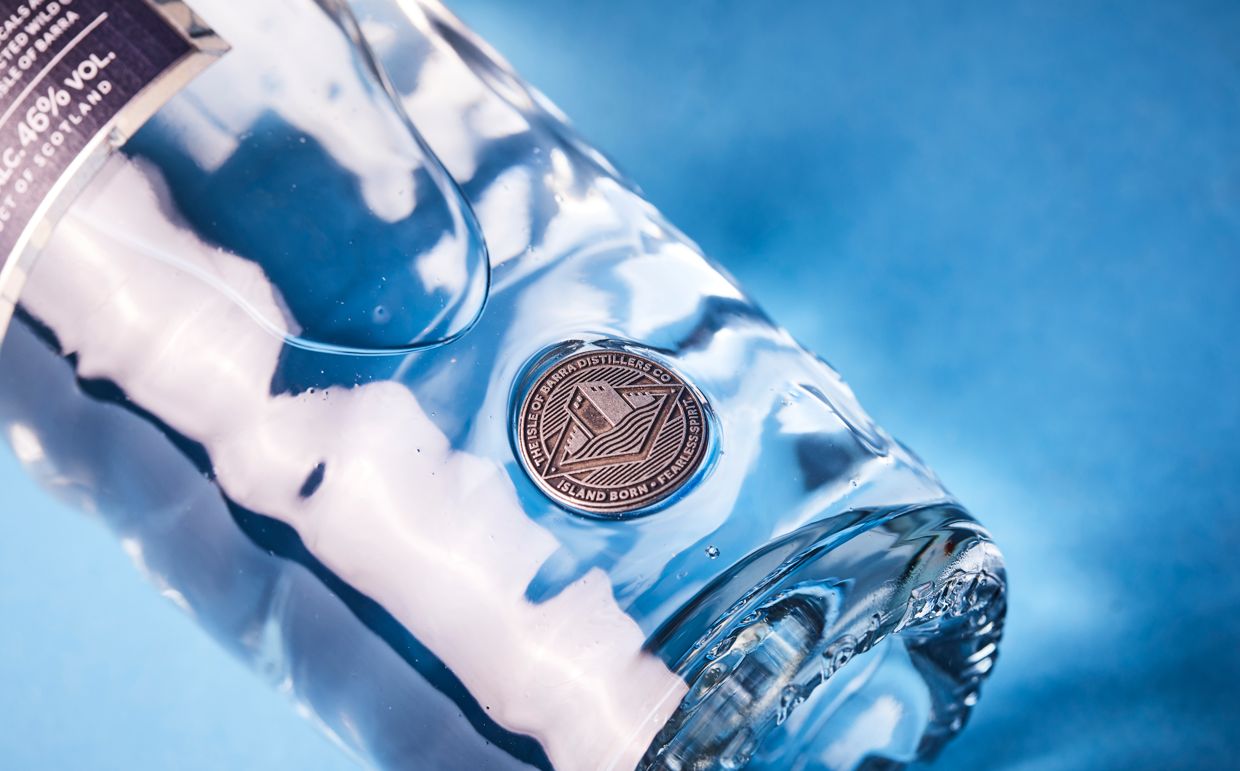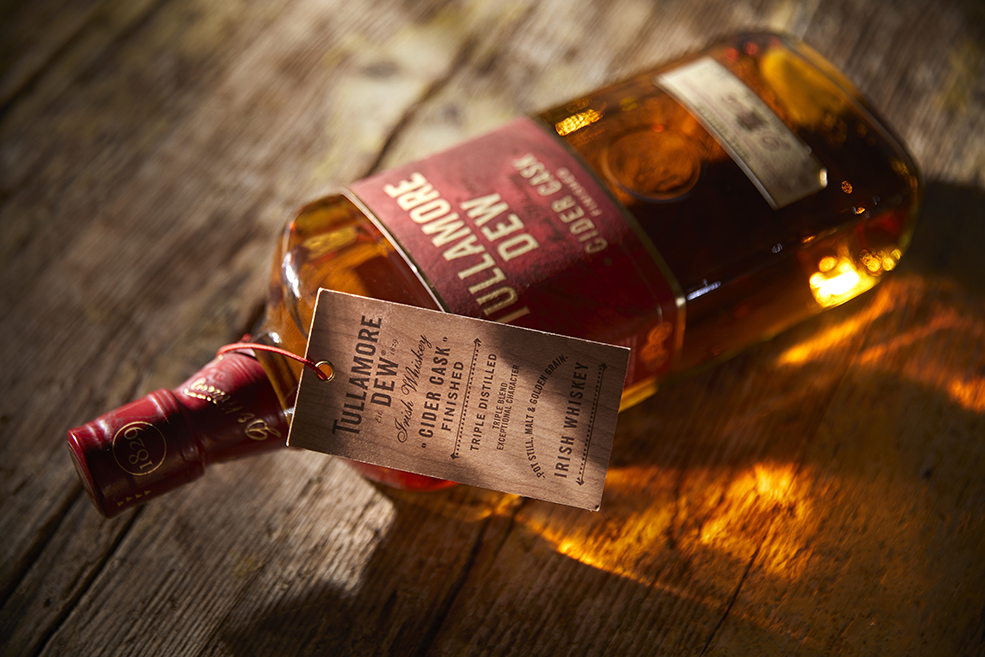As a leading global alcohol brand, Bacardi recently announced its plans for 100% sustainability by 2030, prompting more companies to accelerate their thinking on the effects alcohol packaging has on the environment.
In a bid to cut back on harmful and unnecessary plastics, Bacardi has begun the process of removing plastic pourers from a number of iconic bottles–a move that it is claimed will cut back on 140 metric tonnes of plastic. But the question everyone is asking is, how will such an iconic brand maintain its identity without its former packaging models?
The answer is both complex in its approach to global eco-consciousness, but also relatively simple when it comes to future proofing business profits. As more and more businesses dedicate themselves to making a positive sustainability impact and many consumer decisions now based on supply chain and environmental processes, the evolution of design and packaging is beginning to follow the demand.
As with Bacardi’s plight to ultimately use only recyclable bottles and FSC-certified paper for labels, the key lies in assuring consumers that this move is a positive, environmentally-motivated one, and there will be no compromise on the quality and taste they have become accustomed to.
It is noticeable elsewhere that wine companies are even noticing a rise in Bag in Box wines, a packaging alternative that was once considered the poor relative of the glass and cork alternative. Aside from the reduced cost of production, it’s highly likely that this is due to the ease of recyclability and cyclic nature of the material that cardboard has been portrayed as in the public consciousness. This again confirms the assumption that consumer choice is starting to be driven by environmentally friendly processes.
To help guide your thoughts in offering more sustainable packaging options we’ve outlined a few items that we may be seeing more of in the immediate future:
Lightweight bottles
There’s no question that heavy bottles are, or have been, a demonstration of premiumization within the beverage industry. Does this mean that changing the packaging will have an impact on branding, and potentially sales? Not at all! The premiumisation of your brand can be done through quality design and embellishment, not necessarily the weight of the bottle.
To some industry professionals, the ‘heavy bottle effect’ is considered an overestimation. When Californian-based, Jackson Family Wines recently reduced the weight of two of their finest wines by 2 ounces for eco-friendly purposes, it went largely unnoticed by consumers and has no effect on sales numbers. A further study by Innova Market Insights found that 45% of global consumers have reduced single use plastic over time, a move that supports sustainable re-packaging considerations.

Recycled bottles
International online wine merchant Laithwaite’s has recently launched a wine that comes in a 100% recycled bottle. As part of a pledge to halve its carbon footprint by 2030, this marks a first for the industry.
Naturally, there comes a fear in altering any well-established brand that is firmly embedded in the minds of its consumers, but Laithwaites are choosing to embrace the giant leap towards sustainability, and the opportunity to give an old glass new life. Up branding is always important in maintaining consumer interest, but is often associated with luxury items that do little for the environment. What we’re finally seeing is that sustainable doesn’t have to mean compromised luxury.
In a recent project we supported Scotland’s Isle of Barra Distillers Ltd in looking to the future with their new sustainable bottle and packaging design. Their new bottle design not only looks amazing, but it is also 100% recyclable and 100% plastic free! Signet were proud to be able to support this environmentally aware project by producing a stunning die-cast coin to embellish Barra’s new greener, recycled bottle. A sustainable embellishment option for a brighter, environmentally friendly future.
“This isn’t just a new bottle or a new marketing strategy. This is the positive change that we have wanted to do for some time.” – Michael Morrison, Managing Director/Head Distiller
Paper bottles
Paper wine bottles use a cardboard outer shell with a waterproof inner to contain the liquid. Despite a few logistical matters (don’t get the outer wet!) and the willingness of consumers to purchase, there are great possibilities – including an 84% carbon footprint reduction to the glass bottle!
UK wine specialist ‘When in Rome’ has recently launched its new paper bottles which will soon be available in UK online grocery retailer, Ocado. It has all the benefits of BIB wine, but with the added aesthetics that are often lacking in traditional BIB packaging. As paper bottles have the overall shape and appearance of a standard bottle, theoretically, they should still appeal to the demands of a consumer.

Embellishments
Packaging is more than just the vessel in which it’s carried. Labels, cartouches, neck collars, seals and other branding embellishments all add to making a product look mesmerising. These shouldn’t be overlooked when devising a sustainability strategy for your brand.
Modern manufacturing techniques have helped recycled products, and new eco-friendly materials become increasingly complex, higher quality and more economical to use than ever before. Wood is one such material that has become synonymous, and instantly recognisable, as a symbol of sustainability. Signet recently integrated a wooden design into a stunning cartouche for the Scotch whisky brand Glengoyne. In appearance, it looks every bit as sleek as its predecessors, but with a much kinder carbon-footprint.
Another example of adopting a sustainable vision and replacing non-environmentally friendly materials with modern eco-conscious options comes in the form of aluminium. Renowned for ease of recyclability, replacing traditional plastic or metal Neck collars and labels can be an ideal way to improve your eco-credentials without losing your visual brand style or reputation. Flexible aluminium labels, such as Signet’s Marque, are in high demand due to their highly recyclable properties while retaining a premium feel.
You can discover how renowned UK-based craft sprit brand Alnwick Gin transitioned from traditional Pewter label to an aluminium Marque label, replicating the original without any visual difference to the consumer, saving both the environment and cost of goods sold (COGS) in the process. Read more HERE.
And finally…
As we move towards sustainable ways of living, we should look more frequently at the choice of packaging materials that are used for the products that we buy. Companies that opt for ethical journeys and eco-friendly products assure their audience that they’re fulfilling a corporate responsibility. In turn, consumers are more likely to invest and remain loyal to these brands that align with their own values.
Whatever you decide for the future of your alcohol brand, you can always create bespoke and timeless packaging designs that will help your product stand out. If you’re interested in labels and embellishments that fulfil sustainability requirements, please get in touch with Signet.
We’d love to find out more about your product or brand and we’d be delighted to arrange a consultation to discuss your product embellishment needs – simply fill in the form and we’ll be in touch.
Alternatively, give us a call on 01733 396080